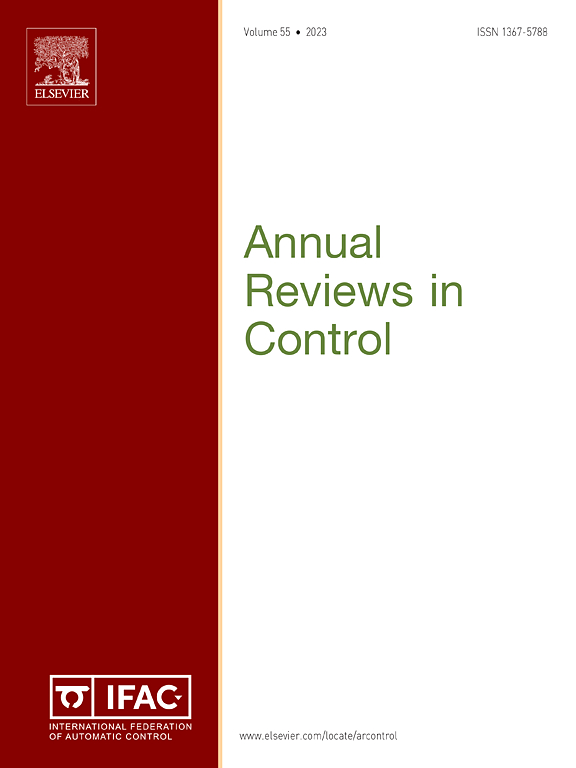Adaptive control and reinforcement learning for vehicle suspension control: A review
IF 10.7
2区 计算机科学
Q1 AUTOMATION & CONTROL SYSTEMS
引用次数: 0
Abstract
The growing adoption of electric vehicles has drawn a renewed interest in intelligent vehicle subsystems, including active suspension. Control methods for active suspension systems have been a research focus for many years, and with recent advances in machine learning, learning-based active suspension control strategies have emerged. Classically, suspension controllers have been model-based and thus limited by necessarily simplified models of complex suspension dynamics. Learning-based methods address these limitations by leveraging system response measurements to improve the system model or controller itself. Previous surveys have reviewed conventional and preview-based active suspension controllers, but a detailed examination of newer learning-based methods is lacking. This article addresses this gap by presenting the mathematical foundations of these controllers and categorizing existing implementations. The review classifies learning-based suspension control literature into two main categories: adaptive control, which emphasizes stability through online learning, and reinforcement learning, which aims for optimality through extensive system interactions. Within these broader domains, various sub-categories are identified, allowing practitioners and researchers to quickly find relevant work within a specific branch of learning-based suspension control. Furthermore, this article discusses current trends in the field and proposes directions for future investigations. These contributions can serve as a comprehensive guide for the future research and development of learning-based suspension controllers.
用于车辆悬架控制的自适应控制和强化学习:综述
随着电动汽车的日益普及,人们对包括主动悬架系统在内的智能汽车子系统重新产生了兴趣。多年来,主动悬架系统的控制方法一直是研究重点,随着机器学习技术的不断进步,基于学习的主动悬架控制策略应运而生。传统的悬架控制器都是基于模型的,因此受到复杂悬架动力学简化模型的限制。基于学习的方法利用系统响应测量来改进系统模型或控制器本身,从而解决了这些局限性。以往的调查报告对传统的和基于预览的主动悬架控制器进行了评述,但缺乏对较新的基于学习的方法的详细研究。本文介绍了这些控制器的数学基础,并对现有的实现方法进行了分类,从而弥补了这一不足。综述将基于学习的悬架控制文献分为两大类:自适应控制和强化学习,前者强调通过在线学习实现稳定性,后者则旨在通过广泛的系统交互实现最优性。在这些更广泛的领域中,确定了各种子类别,使从业人员和研究人员能够快速找到基于学习的悬架控制特定分支中的相关工作。此外,本文还讨论了该领域的当前趋势,并提出了未来研究的方向。这些贡献可为基于学习的悬架控制器的未来研究和开发提供全面指导。
本文章由计算机程序翻译,如有差异,请以英文原文为准。
求助全文
约1分钟内获得全文
求助全文
来源期刊

Annual Reviews in Control
工程技术-自动化与控制系统
CiteScore
19.00
自引率
2.10%
发文量
53
审稿时长
36 days
期刊介绍:
The field of Control is changing very fast now with technology-driven “societal grand challenges” and with the deployment of new digital technologies. The aim of Annual Reviews in Control is to provide comprehensive and visionary views of the field of Control, by publishing the following types of review articles:
Survey Article: Review papers on main methodologies or technical advances adding considerable technical value to the state of the art. Note that papers which purely rely on mechanistic searches and lack comprehensive analysis providing a clear contribution to the field will be rejected.
Vision Article: Cutting-edge and emerging topics with visionary perspective on the future of the field or how it will bridge multiple disciplines, and
Tutorial research Article: Fundamental guides for future studies.
 求助内容:
求助内容: 应助结果提醒方式:
应助结果提醒方式:


